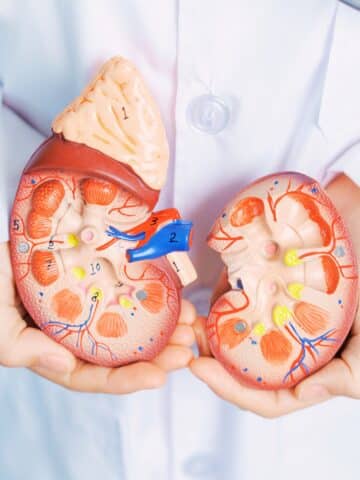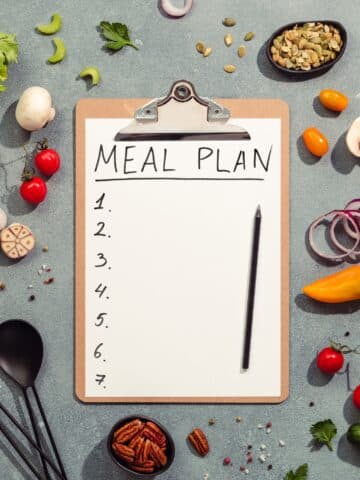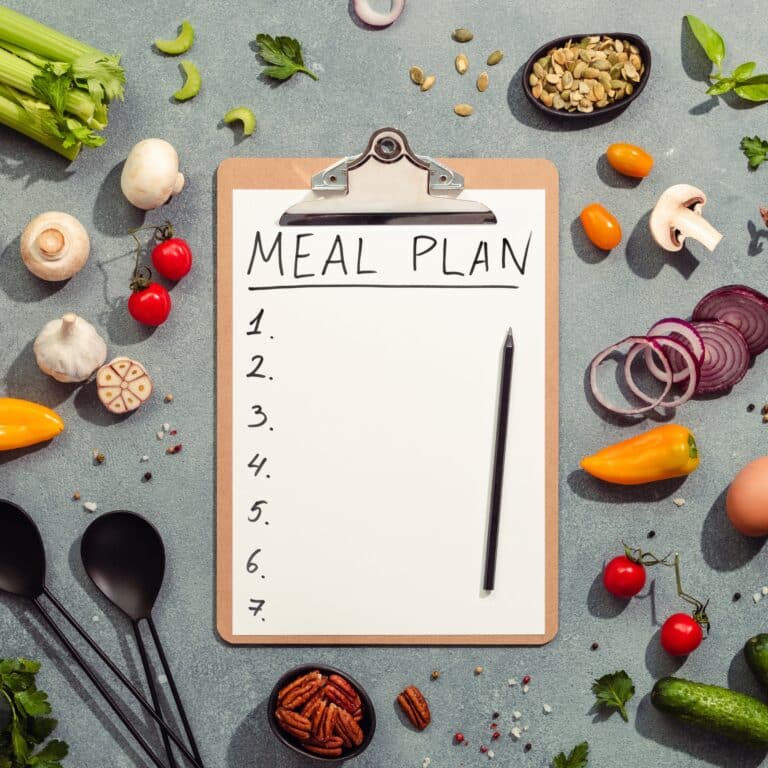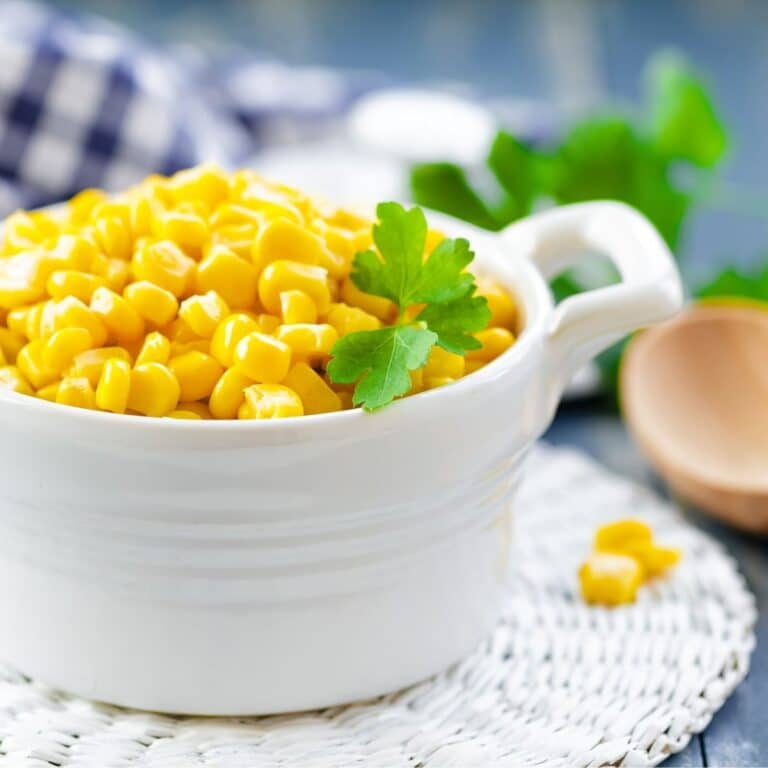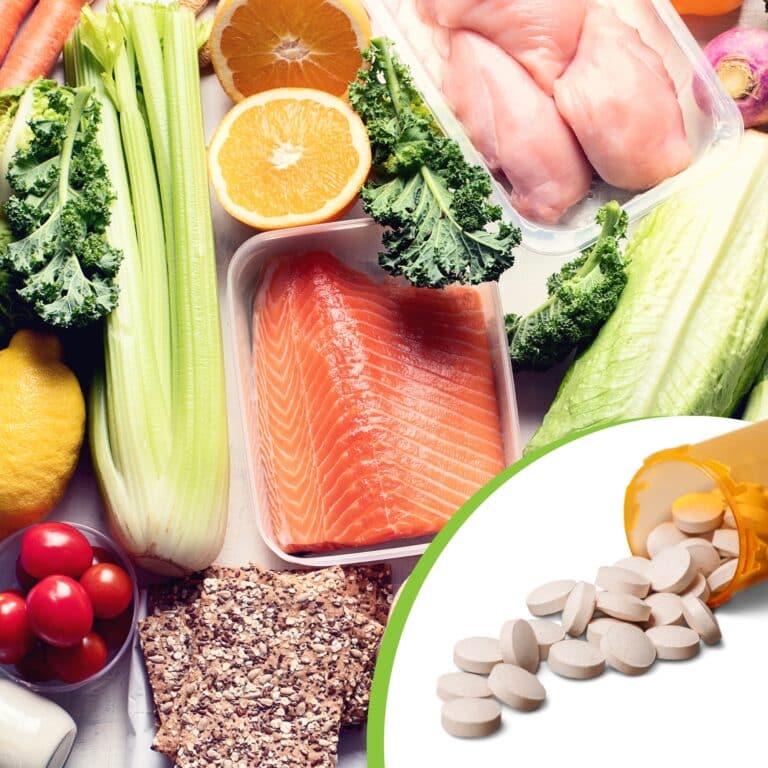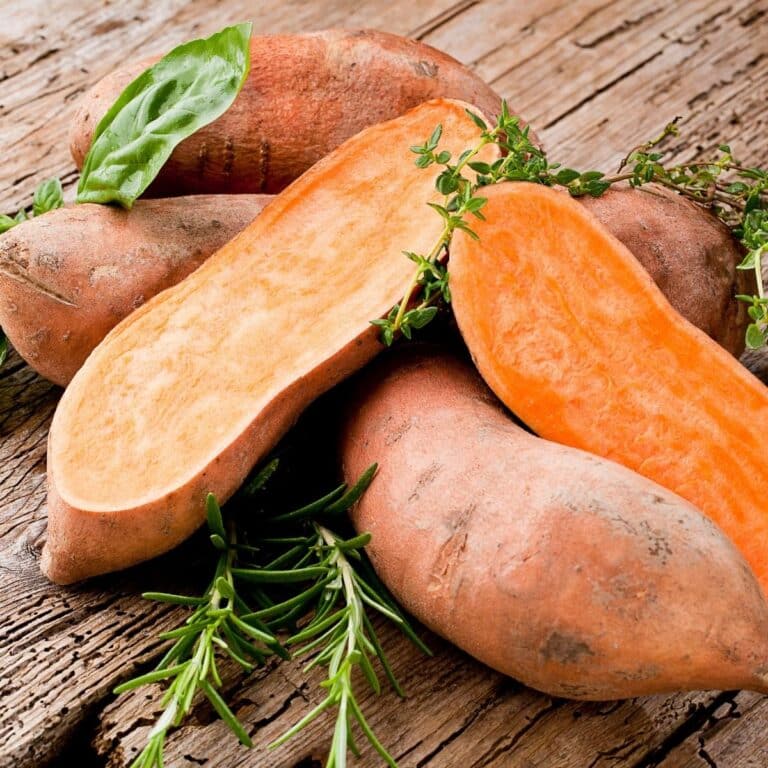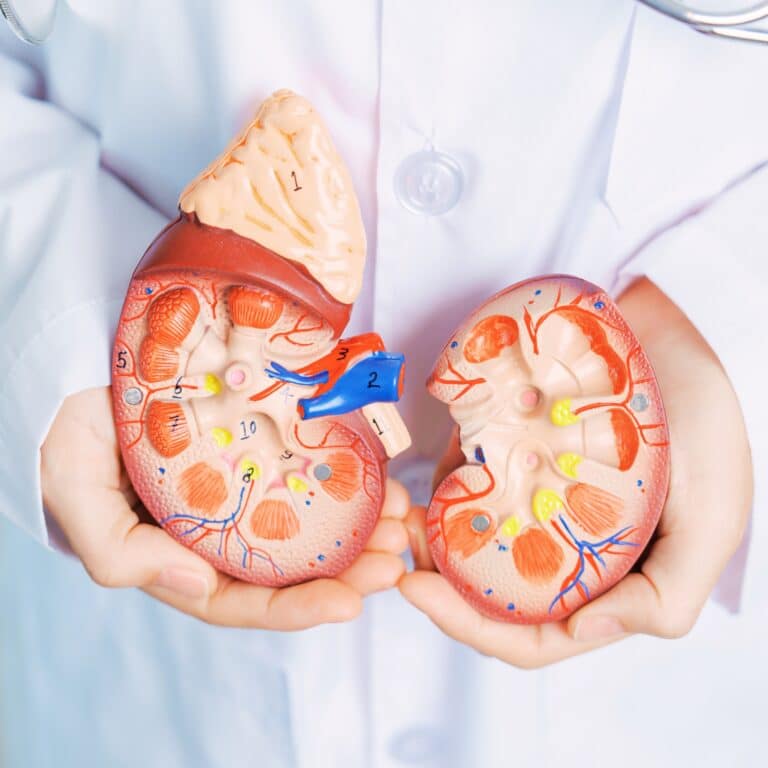Pre Dialysis Diet
You will likely have different dietary restrictions as your chronic kidney disease changes. When your kidneys worsen, you will have to modify your renal diet to ensure you aren’t consuming foods that will accelerate the process of losing kidney function.
It’s essential that you understand a pre-dialysis kidney diet isn’t the same as the diet for those on dialysis. Your restrictions change, and some things you limited before no longer have to be so heavily moderated.
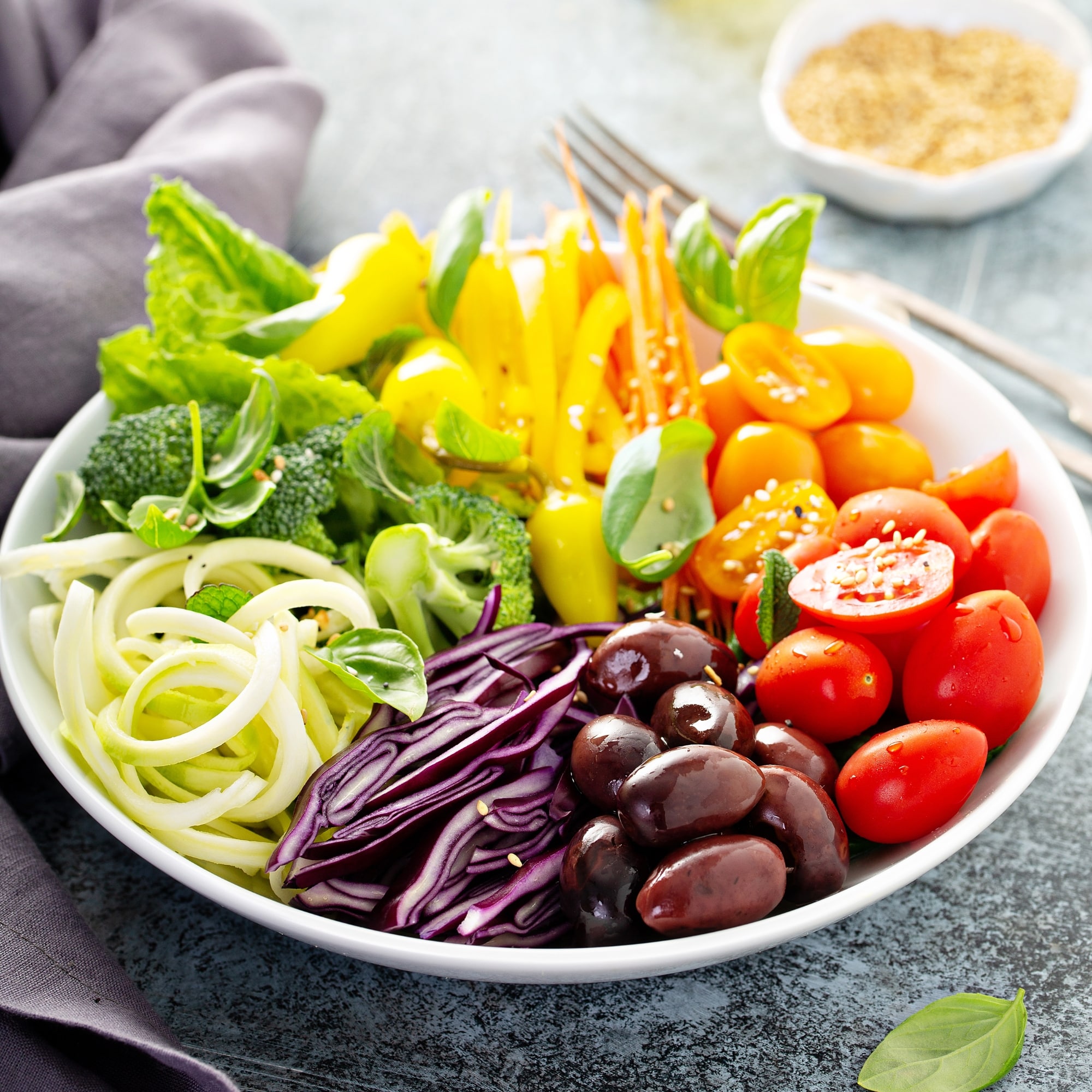
Let's look at the essentials you need to know about your diet before dialysis is needed.
Jump to:
- Key Takeaways
- Understanding CKD Non-Dialysis Diet
- Importance of Personalized Eating Plan
- Importance of Dietitian in CKD Diet
- Restricted Food Intake Guidelines
- The Impact of Dietary Restrictions
- Protein Reduction in CKD Diet
- Fluid Intake and Kidney Health
- Carb and Fat Management in CKD Diet
- Managing Blood Pressure and Glucose Levels
- Frequently Asked Questions
- Pre-Dialysis Diet Slows Down CKD Progression
Key Takeaways
- Pre-dialysis diet specifics depend on kidney function, focusing on limited protein, lower sodium, and potassium while managing fluid intake.
- Fluid management becomes crucial as CKD progresses, aiming for awareness and moderation rather than immediate restriction.
- Personalized kidney friendly eating plans crafted by dietitians cater to individual needs, emphasizing nutrient control and fluid management.
- Essential considerations in personalizing pre-dialysis diets include kidney function, medical history, lifestyle, and dietary habits.
- Renal dietitians play a pivotal role, customizing kidney. diets, educating on portion control, label reading, and adjusting plans as CKD progresses.
For More Recipes and Ideas --->> Get Your Free Meals and Recipes That Are Perfect for Pre-Dialysis Diets, Pre-Dialysis with Diabetes, or Dialysis Diets.
Understanding CKD Non-Dialysis Diet
For earlier stages of CKD, you will be given a specialized pre-dialysis diet also known as CKD non-dialysis diet. The exact restrictions will depend on the level of kidney function you have remaining. Since the organs can still filter some waste, you will need to watch certain foods and nutrients.
Dietary Restrictions
Limited Protein – Because protein wastes are difficult for your kidneys to filter from the blood, you will need to make sure you aren’t consuming too much each day. It’s also a good idea to get your protein from plant-based sources when possible, as they aren’t as harsh on the kidneys as animal-based options.
Lower Sodium – Sodium restriction is also vital on a CKD non-dialysis diet. Table salt should be avoided as a flavoring, and you should also eliminate processed foods from your diet – as they generally contain high amounts of sodium. Sodium causes your body to retain extra fluid, which is hard for damaged kidneys to remove effectively.
Potassium Restrictions – Another nutrient that your pre-dialysis diet will limit is potassium intake. People with kidney disease can easily collect an excessive amount of potassium in the blood, since the kidneys cannot filter it out very well. The result can be very dangerous, such as irregular heartbeat, abnormal heart rate, or even heart failure and heart attack.
Managing Fluid Intake
In pre-dialysis stages of kidney disease, fluid balance management typically involves monitoring rather than strict restriction. Until stages 4 or 5, most individuals maintain normal fluid intake.
However, as kidney function declines, managing fluid becomes critical. The focus isn't immediate limitation but rather awareness and moderation. People with kidney disease are advised to track their intake, considering factors like urine output and individual needs.
Adjustments may involve avoiding excessive sodium or potassium-rich fluids. Educating individuals about signs of fluid overload and fostering mindful hydration habits is crucial. Healthcare guidance becomes more essential as kidneys weaken, aiming to prevent complications such as edema or electrolyte imbalances.
Predialysis fluid management prioritizes a balanced approach, supporting kidney health without imposing excessive restrictions until necessary stages of renal decline.
Importance of Personalized Eating Plan
Tailoring to specific needs is among the important aspects of diet planning in managing chronic kidney disease (CKD) before dialysis. A personalized eating plan not only addresses nutritional needs but also plays a pivotal role in slowing disease progression and mitigating complications.
In pre-dialysis stages, understanding an individual's specific renal function, health status, and dietary requirements forms the cornerstone of effective CKD management, highlighting the criticality of personalized dietary approaches.
Dietitian's Role in Personalization
Dietitians are pivotal in customizing diets for individuals with non-dialysis chronic kidney disease. They meticulously evaluate kidney function, medical history, nutritional status, and lifestyle to craft personalized dietary plans.
Through careful interpretation of lab results, they adjust nutrient intake, especially monitoring protein, sodium, potassium, and serum phosphate levels. Equipping renal patients with knowledge about portion control, label reading, and cooking methods, dietitians empower informed decision-making. They facilitate gradual dietary modifications, ensuring a well-balanced intake that supports kidney health and meets nutritional needs.
Continual guidance and adaptations as CKD progresses underscore the dynamic nature of dietary management. The expertise of dietitians not only optimizes nutritional intake but also serves as a crucial pillar in CKD care, emphasizing the indispensable role of personalized dietary approaches in enhancing overall health outcomes.
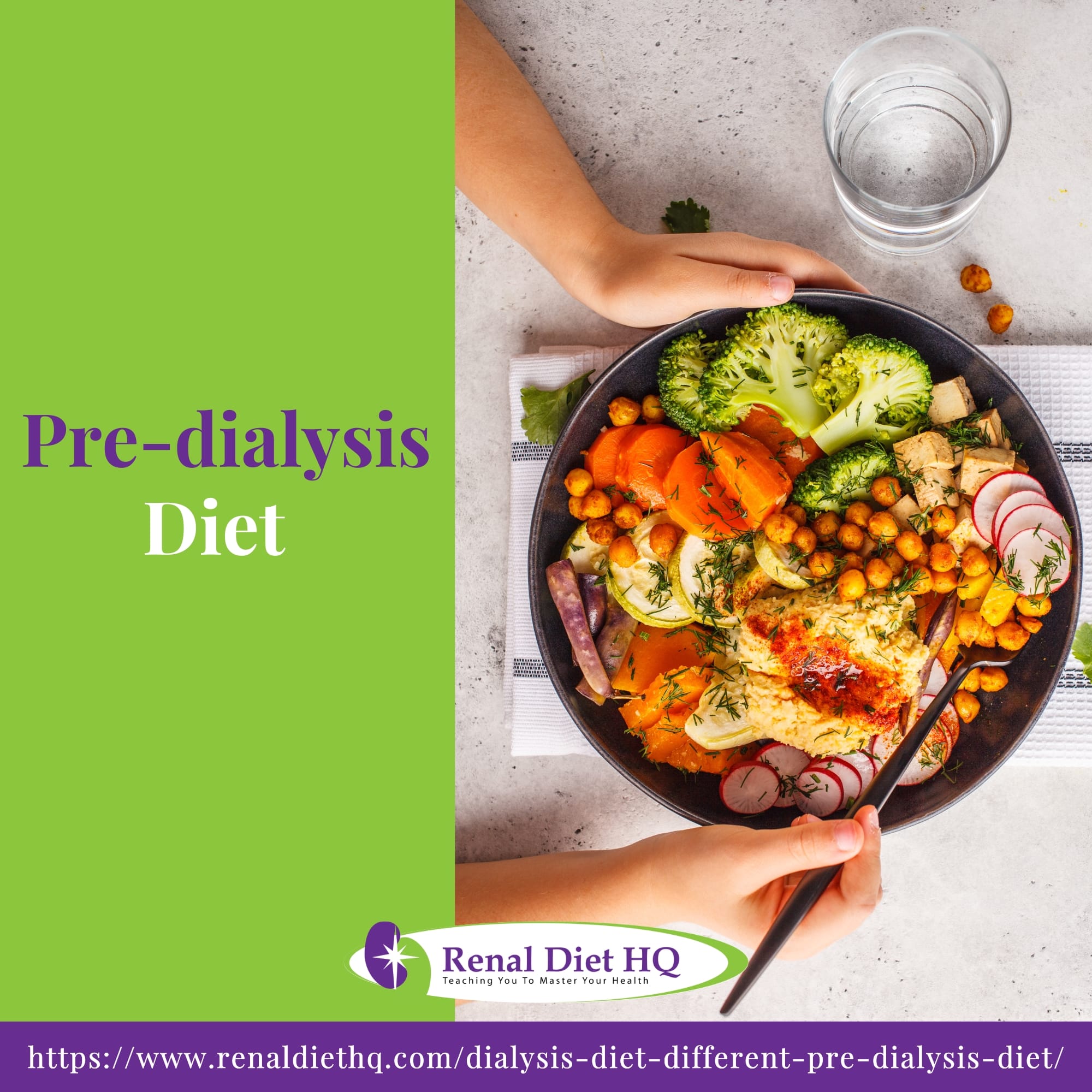
Factors in Pre-dialysis Diet Personalization
Creating a personalized pre-dialysis renal diet involves multifaceted considerations. Initial assessment of kidney function via lab tests dictates necessary dietary adjustments, notably managing protein, sodium, potassium, and blood phosphate levels.
Comorbidities and medical history significantly influence nutrient restrictions and fluid intake recommendations. Lifestyle aspects like activity levels and dietary habits shape the feasibility of dietary modifications.
Additionally, individual preferences, cultural inclinations, and socioeconomic factors impact the practical implementation of the diet plan. Continuous monitoring and adaptations as the disease progresses remain critical.
Collaboration with a dietitian or healthcare provider ensures alignment of the diet plan with specific needs, enhancing adherence and enabling better management of pre-dialysis renal health. Tailoring these elements ensures a holistic and effective approach in addressing individualized requirements in pre-dialysis renal care.
Importance of Dietitian in CKD Diet
As you navigate your journey with CKD, a dietitian plays a pivotal role in managing your pre-dialysis diet plans. They'll provide you with a personalized eating plan, balancing the necessary nutrients while considering your unique needs.
Let's discuss how their expertise can guide you towards improved kidney health and overall well-being.
Renal Dietitian for Pre-dialysis CKD Diet
Collaborating with a renal dietitian is paramount in managing pre-dialysis chronic kidney disease. These specialists possess in-depth knowledge and expertise in tailoring dietary plans to individual needs. They navigate the intricate balance of nutrients crucial for kidney health, including protein, sodium, potassium, and phosphorus, based on specific lab results and medical history.
Renal dietitians offer personalized guidance, educating patients on portion control, label reading, and meal planning, empowering informed decision-making. Moreover, they provide ongoing support, adjusting diets as CKD progresses, ensuring optimal nutritional intake without compromising kidney function. Their insights into managing fluid intake and addressing complications like electrolyte imbalances or mineral imbalances are invaluable.
Collaborating with a renal dietitian not only optimizes nutritional strategies but also enhances patient compliance, improving overall CKD management and potentially slowing progression of kidney disease, emphasizing the indispensable role of these experts in pre-dialysis CKD care.
Dietary Guidance for CKD
Pre-dialysis chronic kidney disease patients require tailored dietary guidance due to the critical impact of nutrition on kidney health and disease progression.
Dietary interventions directly influence factors like protein, sodium, potassium, and phosphorus levels, pivotal in preserving kidney function. Guidance ensures appropriate intake to prevent further damage while meeting nutritional needs.
Managing fluid intake becomes crucial as kidney function declines, avoiding complications like edema and electrolyte imbalances. Limiting potassium based salt substitutes is important as well.
Moreover, dietary adjustments mitigate symptoms and comorbidities commonly associated with CKD, like hypertension or bone disorders. Personalized dietary guidance from experts such as renal dietitians educates patients on optimal food choices, portion control, and cooking methods, empowering them to actively participate in their health management.
Effective dietary management not only slows CKD progression but also improves overall well-being, emphasizing the necessity of tailored diet suggestions for pre-dialysis CKD patients.
Restricted Food Intake Guidelines
Understanding optimal food choices is pivotal in managing pre-dialysis chronic kidney disease. Food intake guidelines play a crucial role in preserving kidney function and overall health. In this section, we delve into essential recommendations for pre-dialysis renal diets.
From managing protein to navigating sodium, potassium, and phosphorus levels, these guidelines empower individuals to make informed decisions about food choices, contributing to better CKD management and improved quality of life.
Diet Guidelines in CKD
The KDOQI Clinical Practice Guideline for Nutrition in CKD provides comprehensive recommendations crucial for managing chronic kidney disease. It offers guidance on aspects of diet planning, emphasizing individualized approaches based on CKD stage, comorbidities, and lab results.
The guideline outlines the low protein diet to mitigate renal workload and suggests limiting high-phosphorus foods to prevent mineral imbalances. It stresses sodium and potassium level control for managing blood pressure and electrolyte balance.
Moreover, the guideline addresses the importance of adequate caloric intake and monitoring micronutrients to prevent deficiencies. It also highlights the role of nutritional supplements when necessary.
By promoting tailored dietary strategies, this guideline serves as a cornerstone in CKD management, aiming to slow disease progression, minimize complications, and enhance overall well-being for individuals with renal impairment.
Limiting Low-Nutrient Foods
Limiting low-nutrient, calorie-dense foods like candy, soda, and processed items is highly advantageous in managing chronic kidney disease. These foods often contain excessive amounts of phosphorus, sodium, and added sugars, which can exacerbate kidney damage and lead to complications.
High phosphorus levels contribute to mineral imbalances and bone issues in CKD, while excess sodium raises blood pressure, stressing the kidneys further. Moreover, the high sugar content in these items may contribute to diabetes, a common comorbidity in CKD.
By avoiding these foods, individuals with CKD can better control their intake of harmful substances, thus reducing the risk of electrolyte imbalances, hypertension, and further kidney damage.
Instead, focusing on nutrient-dense, whole foods helps maintain proper nutritional balance, supports overall health, and aids in slowing the progression of CKD, ultimately improving the quality of life for those managing renal impairment.
The Impact of Dietary Restrictions
Understanding the profound influence of dietary restrictions is key in managing chronic kidney disease. This section delves into the significant impact that tailored dietary limitations have on CKD patients.
From managing nutrient intake to fluid restrictions, these guidelines play a pivotal role in slowing disease progression and alleviating symptoms. Exploring the nuances and effects of these restrictions illuminates their critical role in enhancing the quality of life for individuals navigating CKD.
Protein Intake's Effect
Protein consumption significantly impacts chronic kidney disease progression. Excessive protein intake can strain weakened kidneys, leading to increased glomerular pressure and accelerating kidney damage. In pre-dialysis CKD stages, controlling protein consumption becomes crucial as it helps manage kidney workload.
Limiting daily protein intake reduces the production of waste products, lessening the kidneys' filtration burden and potentially slowing disease progression.
However, it's vital to balance protein restriction with meeting essential nutritional needs. Moderating high-quality protein sources and distributing intake throughout the day can support muscle health while easing strain on the kidneys.
Professional guidance from a healthcare provider or dietitian ensures adequate intake of protein for maintaining health while managing the progression of CKD, highlighting the nuanced role of controlled protein consumption in optimizing renal health before dialysis becomes necessary.
Mineral Imbalance
In chronic kidney disease, uncontrolled intake of sodium, potassium, and phosphorus can result in detrimental mineral imbalances.
Elevated sodium levels contribute to fluid retention and increased blood pressure, straining weakened kidneys. Excessive blood potassium levels can lead to irregular heart rhythms and muscle weakness. Moreover, heightened phosphorus levels in non-dialysis CKD can disrupt calcium balance, weakening bones and potentially leading to cardiovascular complications.
Failing to control these mineral intakes exacerbates CKD progression, causing electrolyte imbalances that worsen renal function and amplify associated symptoms. Dietary management involving careful monitoring and restriction of sodium, potassium, and phosphorus becomes essential in preserving kidney function, mitigating complications, and enhancing the overall quality of life for individuals in non-dialysis CKD stages.
Professional guidance from healthcare providers or dietitians is crucial in establishing tailored dietary plans to manage these mineral imbalances effectively.
Protein Reduction in CKD Diet
As you manage your CKD with a pre-dialysis diet, one crucial adjustment is the reduction of protein intake. This limitation is essential because it helps preserve your kidney function by decreasing the buildup of waste your kidneys have to filter.
Understanding and applying this dietary modification can significantly influence the progression of your kidney disease.
Protein Intake Limitations
For individuals managing chronic kidney disease, a low-protein diet (LPD) is commonly advised, with daily protein count typically ranging from 0.6 to 0.8 grams of protein per kilogram of body weight per day.
This controlled protein intake aims to lessen the workload on the kidneys by reducing the generation of waste products from protein metabolism. However, the exact protein recommendation varies based on CKD stage, individual health status, and nutritional needs.
Higher protein needs might be necessary for those with specific conditions or undergoing treatments like dialysis. It's crucial to balance protein restriction with meeting essential nutrient requirements, especially for maintaining muscle mass and overall health.
Reducing Protein in Diet
Limiting protein intake in the daily diet of pre-dialysis chronic kidney disease patients involves strategic dietary adjustments.
Emphasizing high-quality, lower-protein sources like egg whites, fish, poultry, and limited portions of lean proteins helps manage protein intake. Substituting some animal proteins with plant-based options like beans, lentils, and tofu can further reduce overall protein consumption.
Portion control and meal planning become crucial—dividing protein intake throughout the day ensures a steady supply without overwhelming the kidneys. Monitoring food labels for hidden proteins and avoiding processed or cured meats high in sodium as well as high phosphate foods aids in adhering to protein restrictions.
Collaborating with a dietitian or healthcare provider helps craft a balanced diet, considering individual needs and ensuring adequate nutrition while effectively moderating protein intake, thereby supporting kidney health in pre-dialysis CKD management.

Fluid Intake and Kidney Health
In the context of a pre-dialysis diet, managing your fluid intake plays a pivotal role in maintaining kidney health. It's important to understand how fluid retention can indicate declining kidney function and how to adjust your diet accordingly.
Regular monitoring of your fluid status, alongside prescribed medications, can support your kidneys and overall health.
Managing Fluid Retention
Often, you'll need to carefully monitor your fluid intake to effectively manage fluid retention and support your kidney health. Fluid retention management is vital, particularly for those aiding others in their journey towards better health.
You can start by:
1. Observing swelling indicators: Unusual swelling, especially around your ankles and eyes, may be a sign of excess fluid.
2. Regular fluid status monitoring: Keep track of your fluid intake and output. It's a smart way to understand your body's response to different amounts of fluid.
3. Making fluid intake adjustments: If you notice any signs of fluid retention, consider reducing your fluid intake. Consult with your healthcare provider before making any significant changes.
Monitoring Fluid Intake
Monitoring fluid intake in pre-dialysis chronic kidney disease involves a multifaceted approach. Firstly, individuals are advised to track their fluid intake by measuring the volume of fluids consumed daily.
This includes not just beverages but also foods with high water content. Understanding individualized fluid allowances set by healthcare providers based on kidney function, urine output, and other health factors is crucial.
Managing thirst by rinsing the mouth or sucking on ice chips instead of consuming excess fluids helps control intake. Additionally, moderating sodium intake assists in fluid retention management. Regularly weighing oneself and keeping track of sudden weight changes can indicate fluid accumulation.
Collaborating with a healthcare team, particularly a nephrologist or dietitian, enables individuals to establish and maintain appropriate fluid limits, optimizing pre-dialysis CKD management and reducing the risk of fluid-related complications.
Carb and Fat Management in CKD Diet
This section delves into the intricate role of carbohydrate and fat management within the chronic kidney disease diet. Understanding the impact of these macronutrients is pivotal in navigating optimal decisions about food choices for CKD patients.
From moderating carbohydrate intake to balancing healthy fats, exploring these dietary components sheds light on their significance in supporting kidney health and overall well-being for individuals managing CKD.
Balancing Carbs in CKD
Balancing carbohydrates in a pre-dialysis chronic kidney disease diet is crucial to manage blood sugar levels and minimize stress on the kidneys.
Opting for complex carbohydrates like whole grains, fruits, and vegetables over refined sugars helps regulate glucose without burdening renal function. Portion control is vital—monitoring serving sizes of carbohydrate-rich foods aids in controlling intake. Additionally, considering the glycemic index of foods assists in choosing options that have a milder impact on blood sugar.
Collaborating with a dietitian to create a meal plan tailored to CKD requirements ensures balanced carbohydrate intake, supporting stable blood sugar levels while mitigating additional strain on weakened kidneys. This approach not only addresses nutritional needs but also contributes to better overall CKD management and quality of life.
Healthy Fats Importance
Reducing unhealthy fats and incorporating healthier alternatives is pivotal in a renal pre-dialysis diet. Limiting saturated and trans fats found in processed foods, canned meats, deli meats, fried items, and fatty meats helps manage cholesterol levels and supports heart disease prevention in CKD.
Opting for healthier fats like monounsaturated and polyunsaturated fats from sources such as olive oil, avocados, nuts, and seeds can benefit kidney function and overall well-being. Portion control remains essential—measuring oil and nut servings moderates fat intake.
Reading food labels for hidden fats and choosing leaner cuts of meat aids in limiting unhealthy fat consumption. Consulting a dietitian to customize a meal plan ensures the inclusion of appropriate healthy fats while reducing harmful ones, supporting a balanced renal diet.
This approach not only promotes cardiovascular health but also contributes to better management of pre-dialysis CKD, enhancing overall health outcomes for individuals with renal impairment.
Managing Blood Pressure and Glucose Levels
Let us delve into the intricate balance of managing blood pressure and glucose levels within the pre-dialysis chronic kidney disease diet. Given the prevalence of hypertension and diabetes in CKD, understanding how dietary choices impact these vital health factors is crucial.
Exploring effective strategies to regulate blood pressure and glucose levels not only supports kidney health but also plays a pivotal role in comprehensive CKD management, enhancing overall well-being for individuals navigating renal impairment.
Blood Pressure Control Importance
Effectively managing blood pressure through a carefully crafted diet is paramount in pre-dialysis chronic kidney disease.
Prioritizing a diet rich in fruits, vegetables, whole grains, and lean proteins, coupled with restricted sodium intake, proves instrumental in regulating blood pressure. Moderate alcohol and caffeine consumption further supports these efforts. By minimizing processed and high-sodium foods, fluid retention is reduced, alleviating stress on compromised kidneys.
Collaborating with a dietitian and your nephrologist ensures a personalized meal plan, addressing nutritional needs while actively managing blood pressure. This dietary approach not only fosters kidney health but also diminishes the risk of cardiovascular complications, providing holistic predialysis CKD care and enhancing overall health for individuals grappling with renal impairment.
Maintaining Adequate Glucose Levels
A pre-dialysis chronic kidney disease diet plays a pivotal role in stabilizing glucose levels. Emphasizing complex carbohydrates from whole grains, fruits, and vegetables over simple sugars helps regulate blood sugar without burdening compromised kidneys.
Portion control and meal timing become crucial—spreading carbohydrate intake evenly throughout the day assists in managing glucose levels. Additionally, monitoring the glycemic index of foods aids in selecting options that have a milder impact on blood sugar. Collaborating with a dietitian ensures a personalized meal plan, tailoring carbohydrate intake to individual needs while considering CKD requirements.
This dietary strategy not only supports stable blood sugar levels but also mitigates additional stress on weakened kidneys, contributing to comprehensive pre-dialysis CKD management and improving overall health outcomes for individuals navigating renal impairment and concurrent glucose control challenges.
Frequently Asked Questions
In a CKD non-dialysis diet, recommended high-quality protein sources include egg whites, fish, poultry without skin, lean cuts of beef or pork, and tofu. Plant-based options like beans, lentils, and legumes also provide quality protein.
These choices offer adequate protein while minimizing phosphorus and potassium content, crucial for managing CKD. Collaborating with a dietitian ensures a balanced intake of these proteins, supporting muscle health and kidney function in CKD without overwhelming the kidneys with excessive waste products.
In a CKD non-dialysis diet, alcohol intake should generally be limited or avoided. Alcohol can elevate blood pressure, dehydrate the body, and interact with medications, potentially worsening kidney function. It also contributes to empty calories and may interfere with proper nutrition.
However, individual recommendations may vary based on specific health conditions and CKD stage. Consulting a healthcare professional or nephrologist is advisable to determine if limited alcohol consumption is safe based on individual circumstances.
Consulting a dietitian regularly is crucial for optimal CKD non-dialysis diet management. Initially, frequent sessions may be needed to establish dietary guidelines tailored to your CKD stage and individual needs.
Follow-up consultations every few months or as advised by your healthcare team are typical to monitor progress, adjust the diet plan, and address any concerns. Regular communication ensures proper adherence to dietary recommendations, supporting kidney health and overall well-being in CKD management.
Pre-Dialysis Diet Slows Down CKD Progression
The significance of a personalized non-dialysis diet for chronic kidney disease cannot be overstated. Customized dietary plans, focusing on limited protein, controlled sodium, and potassium, play a pivotal role in mitigating complications and slowing CKD progression.
Fluid management, though monitored, isn't immediately restrictive, emphasizing awareness over stringent limitations. Dietitians, central to this process, craft tailored plans based on individual health, lab results, and lifestyle, guiding patients toward informed choices. Personalization factors in various aspects, considering lab results, medical history, lifestyle, and cultural preferences, ensuring a holistic approach.
These meticulous dietary adaptations, overseen by dietitians, crucially impact overall health and CKD progression before dialysis becomes necessary.


